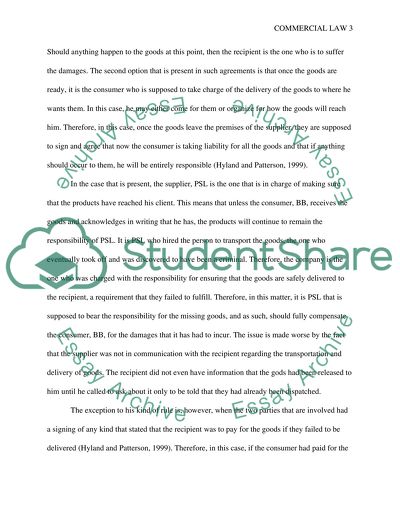Cite this document
(“Commercial transaction law and practice Essay Example | Topics and Well Written Essays - 4000 words”, n.d.)
Retrieved from https://studentshare.org/law/1690162-commercial-transaction-law-and-practice
Retrieved from https://studentshare.org/law/1690162-commercial-transaction-law-and-practice
(Commercial Transaction Law and Practice Essay Example | Topics and Well Written Essays - 4000 Words)
https://studentshare.org/law/1690162-commercial-transaction-law-and-practice.
https://studentshare.org/law/1690162-commercial-transaction-law-and-practice.
“Commercial Transaction Law and Practice Essay Example | Topics and Well Written Essays - 4000 Words”, n.d. https://studentshare.org/law/1690162-commercial-transaction-law-and-practice.


